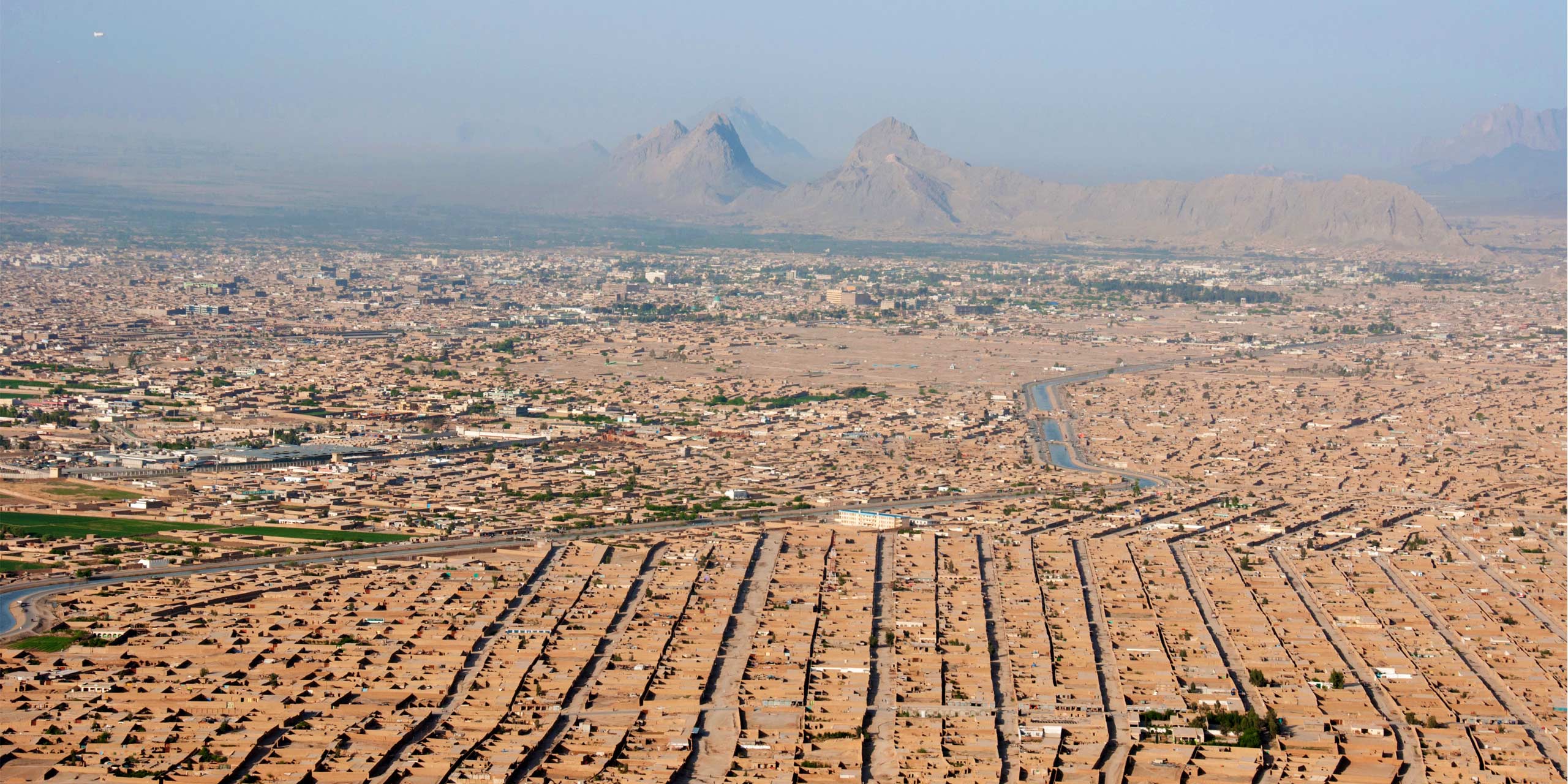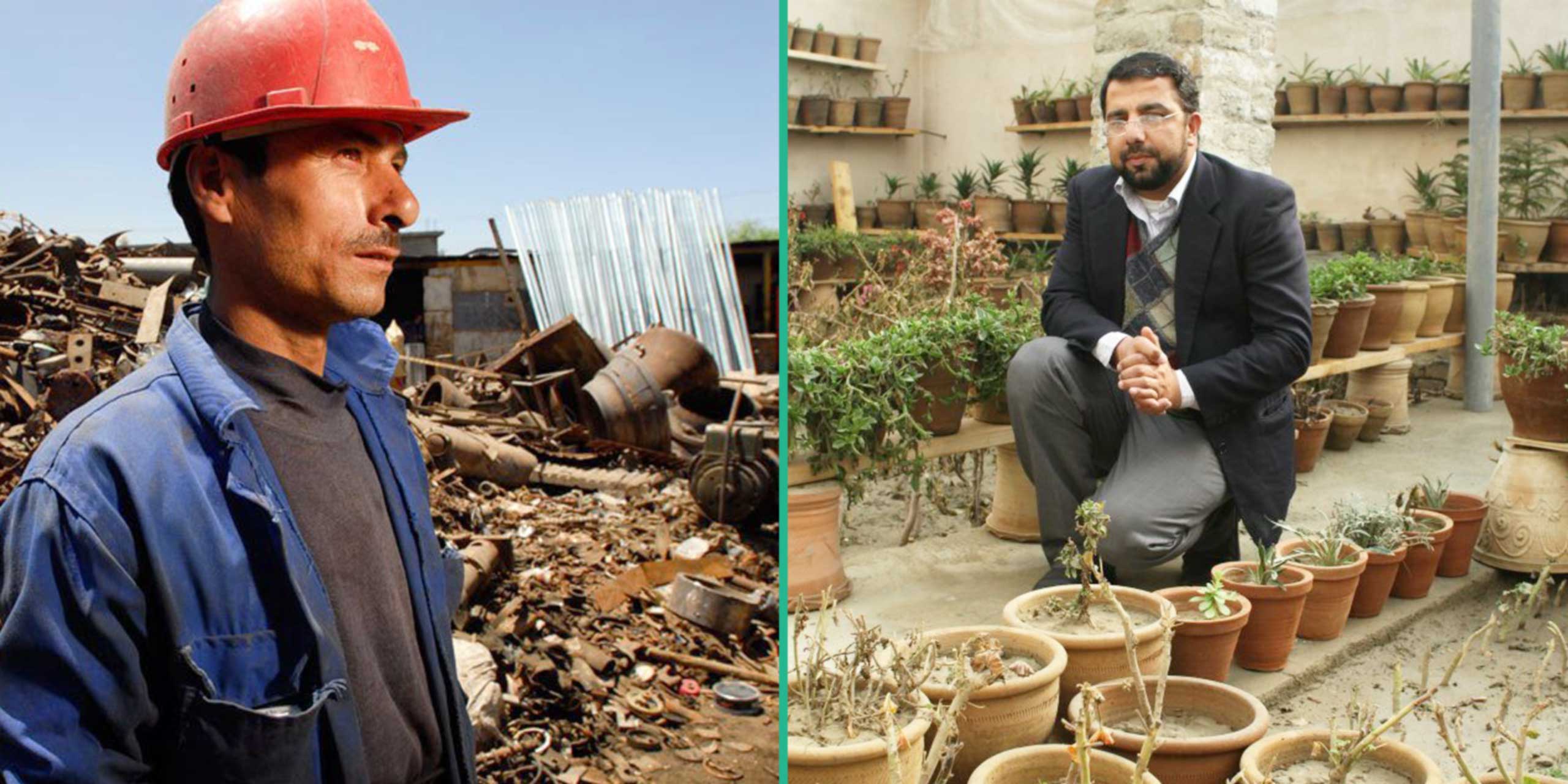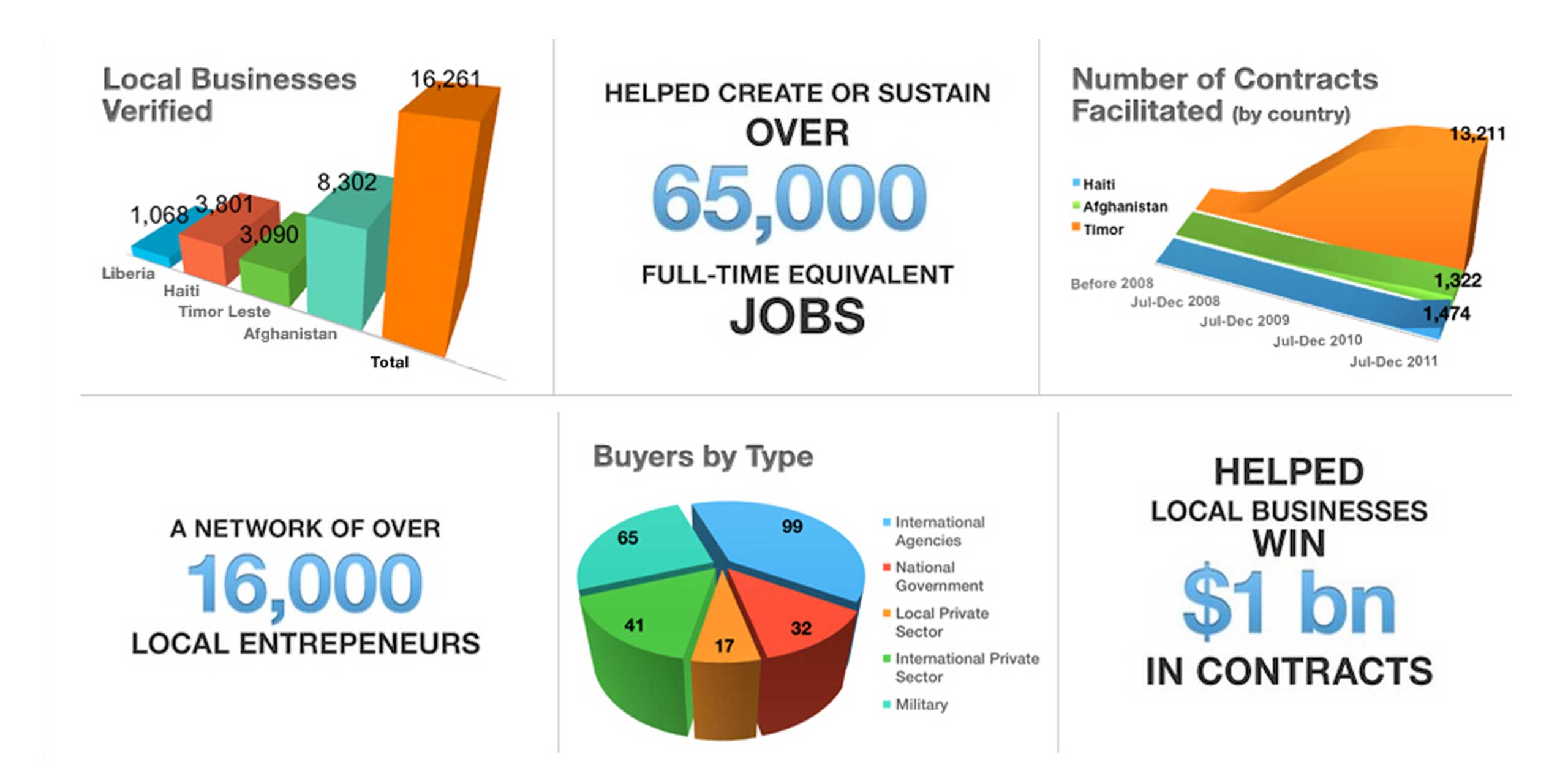Job creation is one of the greatest drivers of poverty reduction and stability in crisis-affected countries. The key to those jobs are local small and medium-sized enterprises (SMEs), which account for 90 percent of companies in any market and generate half of employment worldwide. However, in countries affected by conflict, natural disaster, or forced migration, SMEs are often bypassed by procurement officers, investors, and banks due to a lack of infrastructure and information. As a result, poverty and instability persist, markets are left dependent on aid, and the opportunity to generate self-sustaining growth is lost. These findings have been supported by empirical research undertaken by Building Markets, which has demonstrated that only a small portion (five to -30%) of the operating budgets of international agencies and companies enter the local economies they are meant to help. Building Markets was founded to solve this problem.
Building Markets’ approach is simple. Its teams find and verify competitive local SMEs through in-person surveys. The organization then uses that unique data in two ways. First, it assesses SME growth constraints in order to provide them with access to training needed to bid on, win, and execute contracts. Second, Building Markets then leverages that data to connect SMEs to supply chains and investment through tailored matchmaking, its online business directories, tender distribution, events, and market research. Building Markets measures impact, and advocates for aid reform that supports a local approach.









